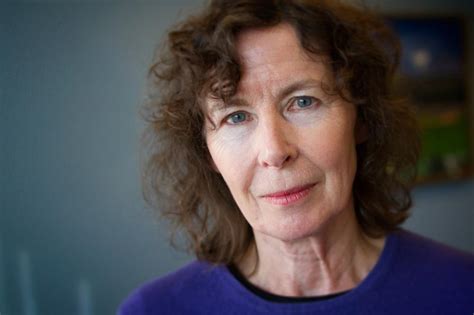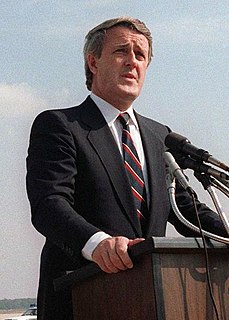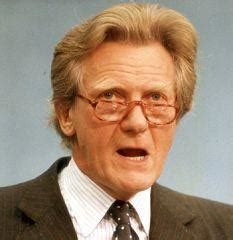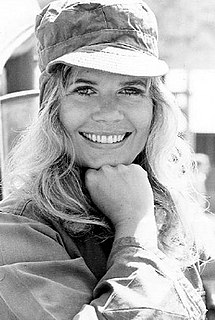Top 394 Margaret Quotes & Sayings - Page 7
Explore popular Margaret quotes.
Last updated on April 17, 2025.
In How to Be an American Housewife Margaret Dilloway creates an irresistible heroine. Shoko is stubborn, contrary, proud, a wonderful housewife and full of deeply conflicted feelings. I wanted to shake her, even as I was cheering her on, and this cunningly structured novel allowed me to do both. It also took me on two intricate journeys, from post-war Japan and the shadow of Nagasaki to contemporary California, and from motherhood to daughterhood and back again. A profound and suspenseful debut.
Margaret had always dreaded lest her courage should fail her in any emergency, and she should be proved to be, what she dreaded lest she was--a coward. But now, in this real great time of reasonable fear and nearness of terror, she forgot herself, and felt only an intense sympathy--intense to painfulness--in the interests of the moment.
It was always said you couldn't have two sisters less alike. In a way [princess] Elizabeth was always internalizing everything and [princess] Margaret was always externalizing everything, so that became the basis. The storyline becomes about these two sisters: they're fighting for their position or trying to establish their identity in the world alongside each other and in relation to this establishment which only those two were a part of.
Margaret [Hodge] is obviously entitled to do what she wishes to do. I would ask her to think for a moment, a Tory prime minister resigned, Britain's voted to leave the European Union, there are massive political issues to be addressed, is it really a good idea to start a big debate in the Labour Party when I was elected less than a year ago with a very large mandate not from MPs, I fully concede and understand that, but from the party members as a whole.
It was hard for me to do the show (All-American Girl) because a lot of people didn't even understand the concept of Asian-American. I was on a morning show and the host said, "Awright, Margaret, we're changing over to an ABC affiliate! So why don't you tell our viewers in your native language that we're making that transition?" So I looked at the camera and said, "Um, they're changing over to an ABC affiliate."
Whether I like it or not, most of my images of what various historical periods feel, smell, or sound like were acquired well before I set foot in any history class. They came from Margaret Mitchell, from Anya Seton, from M.M. Kaye, and a host of other authors, in their crackly plastic library bindings. Whether historians acknowledge it or not, scholarly history’s illegitimate cousin, the historical novel, plays a profound role in shaping widely held conceptions of historical realities.
Liberals in the US don't have great passions about Margaret Thatcher. Conservatives do. For all the worship that Ronald Reagan elicits in conservative circles in the US, I would venture that Thatcher did far more to reshape British society than Reagan did here. When I moved to Britain, the utilities were state-run. By the time I left, most of that was privatized. Thatcher had broken the miners' union, all but crushed the Labour Party, cut back the welfare state, even flirted with a poll tax. In the circles I ran in, Reagan was mocked as a childish dolt. Thatcher was despised.
For Immanuel Kant, the term anthropology embraced all the human sciences, and laid the foundation of familiar knowledge we need, to build solidly grounded ideas about the moral and political demands of human life. Margaret Mead saw mid-twentieth-century anthropology as engaged in a project no less ambitious than Kant's own, and her Terry Lectures on Continuities in Cultural Evolution provide an excellent point to enter into her reflections.
I wouldn't mind the early autumn if you came home today I'd tell you how much I miss you and know I'd be okay. It's funny how we never know exactly how our life will go It's funny how a dream can fade with the break of day. Time can't erase the memory and time can't bring you home Last Summer was a part of me and now a part is gone. —Margaret
It sometimes happens that the town child is more alive to the fresh beauty of the country than a child who is country born. My brother and I were born in London...but our descent, our interest and our joy were in the north country'. Quoted in The Tale of Beatrix Potter a Biography by Margaret Lane, First Edition p 32-33
I had never intended to be on the show more than three years, regardless of how successful it was. I had other things I wanted to do. And I was offered a role in 'Red Sky at Morning', [1970]. I got that part because [producer] Hal Wallis had seen the HERE'S LUCY show with Ann-Margaret. It was a thrill for me, getting to do the drama and comedy. It was such a good role. So I missed several episodes of the show to shoot the movie. And I never came back but one.
Margaret Thatcher inherited the sick man of Europe in 1979 and transformed it into a powerhouse. When she left office, it was Britain redefined. And of course the frosting on the cake was her action in the Falklands, where she gave Britain back some of its pizzazz, addressed some past yearning and great memories. So she gave them back their pride. That was the first great thing she did.
With "Margaret," I remember clearly it was, you know because I did remember it clearly. I was young. I was young in terms of experience and what did I know about and I had an incredible memory from my own childhood. And so it never occurred to me to write for any other age group. And I thought I'm going to write a book and I'm going to tell the truth.
Again, stepping nearer, he besought her with another tremulous eager call upon her name. 'Margaret!' Still lower went the head; more closely hidden was the face, almost resting on the table before her. He came close to her. He knelt by her side, to bring his face to a level with her ear; and whispered-panted out the words: — 'Take care. — If you do not speak — I shall claim you as my own in some strange presumptuous way.
If the layman cannot participate in decision making, he will have to turn himself over, essentially blind, to a hermetic elite. ... [The fundamental question becomes] are we still capable of self-government and therefore freedom? Margaret Mead wrote in a 1959 issue of Daedalus about scientists elevated to the status of priests. Now there is a name for this elevation, when you are in the hands of-one hopes-a benevolent elite, when you have no control over your political decisions. From the point of view of John Locke, the name for this is slavery.
I could never write about the sort of people John Cheever or John Updike or even Margaret Atwood write about. I don't mean I couldn't write as well as they do, which of course I couldn't; they're great writers, and I'm no writer at all. But I couldn't even write badly about normal, neurotic people. I don't know that world from the inside. That's just not my orientation.
I knew she was a party girl. The book I liked most on her was called [princess] Margaret: A Life of Contrasts and getting to know her, it was how conflicted her position and her internal life - or self - was. She is so fiercely royal and so fiercely "sister of the queen" or "daughter of the king" because that is her identity and it's all she's ever known. And at the same time she is struggling to push the boundaries and to break away from it, to be different or to modernize the monarchy, to turn it on its head.
I was, without a sliver of a doubt, a no-good, lazy slacker of a child, and after I discovered literature, I was totally and utterly a no-good, lazy slacker of a child who read books. A lot of books, good and bad, but my favourite - the books I read and reread in my teens - were by Margaret Weis and Tracy Hickman.
Although the advice that you get if you got to see Margaret is 'stand up for yourself, shout back, and argue the toss and then she will respect you', the trouble is that sort of advice to the English middle-class male of a certain age doesn't actually help us very much because we've always been brought up to believe that it's extremely rude to shout back at women.
How shall I ever tell Aunt Shaw?' she whispered, after some time of delicious silence. 'Let me speak to her.' 'Oh, no! I owe it to her, - but what will she say?' 'I can guess. Her first exclamation will be, "That man!" ' 'Hush!' said Margaret, 'or I shall try and show you your mother's indignant tones as she says, "That woman!"
I was doing an interview with Charlie Rose and he said, "What do you think about Margaret Thatcher?" - and I had not heard she had died at this point - and he said, "Is there any kind of Shakespearian overtone here?" I said, "Well, actually, Julius Caesar, because ever if a politician was stabbed in the back, it was Mrs. Thatcher, by all her conspiratorial cabinet, which really did just stab her in the back." It's a rather interesting resonance.
Margaret Fuller was already a celebrity, travelling around the world. Emerson, who was the axis around which that whole community turned, just didn't like Fourier's ideas very much. He thought it was all too rigid and programmatic. He said, "Fourier had skipped no fact but one, namely life." He thought it was an inhumane system - the day is scheduled too precisely. He didn't think it would work, and he was right.
We have a number of very powerful women in the world now - Mrs. [Angela] Merkel, who the Germans call Mutti. What did we call Mrs. [Margaret] Thatcher? When she was minister of education, she stopped the children's free school milk. This may sound quaint, but after the war we were such a malnourished nation that part of the founding of the welfare state were public health initiatives. Every little schoolchild got milk. Mrs. Thatcher stopped it. They called her "Maggie Thatcher, milk snatcher."
Margaret Atwood, the Canadian novelist, once asked a group of women at a university why they felt threatened by men. The women said they were afraid of being beaten, raped, or killed by men. She then asked a group of men why they felt threatened by women. They said they were afraid women would laugh at them.
If Mr. Thornton was a fool in the morning, as he assured himself at least twenty times he was, he did not grow much wiser in that afternoon. All that he gained in return for his sixpenny omnibus ride, was a more vivid conviction that there never was, never could be, any one like Margaret; that she did not love him and never would; but that she — no! nor the whole world — should never hinder him from loving her.
The way I've talked about my research process is that it was like magpies. I was just sort of moving through all these books and when something shiny would pop out I'd be like, Ooh, I love it! and I'd pluck it out. It's fun to figure out how to use those bits you really love - like I'd read about gold shoes with cork heels. Obviously, Margaret would have to wear those shoes.
Well, she's so alive, Julia Child. And Margaret is so - is so designed. She's so intent upon making her point. That's the most important thing, is that she win the argument, and there is nothing that stands in the way of that train, you know. But Julia's just alive in front of you. That's part of why people loved her. They lived it with her. They breathed it with her. And the mistakes were all part of it.
Daughter to that good Earl, once President Of England's Council, and her Treasury, Who lived in both, unstained with gold or fee, And left them both, more in himself content, Till sad the breaking of that Parliament Broke him, as that dishonest victory At Chaeronea, fatal to liberty, Killed with report that old man eloquent. Though later born than to have known the days Wherein your father flourished, yet by you, Madam, methinks I see him living yet; So well your words his noble virtues praise, That all both judge you to relate them true, And to possess them, honoured Margaret.
Margaret Thatcher in Britain and soon after Ronald Reagan in the United States - both hard-line advocates of market fundamentalism - announced that there was no such thing as society and that government was the problem not the solution. Democracy and the political process were all but sacrificed to the power of corporations and the emerging financial service industries, just as hope was appropriated as an advertisement for a whitewashed world in which the capacity of culture to critique oppressive social practices was greatly diminished.
Hot Lips changed a lot in eleven years. Initially, Margaret Houlihan behaved as though a man were the only thing that could complete her life, and she didn't see what richness her life contained. She gained a lot of self-esteem through the years, and she came to realize that what she did, what she offered, was valuable.
"Mr. Thornton," said Margaret, shaking all over with her passion, "go down this instant, if you are not a coward. Go down and face them like a man. Save these poor strangers, whom you have decoyed here. Speak to your workmen as if they were human beings. Speak to them kindly. Don't let the soldiers come in and cut down poor-creatures who are driven mad. I see one there who is. If you have any courage or noble quality in you, go out and speak to them, man to man."
The flat tax I got on my first meeting with Margaret Thatcher, who I admired very much and who was a great admirer of Milton Friedman. I met her first when I had been prime minister I think for some months and so on, and when I told her what I am planning to do, she looked at me with these big eyes and said: "You are one brave young man." And then a little bit introduced me on the realities of the Western world on which I was not very well informed. But I didn't stop.
She looked into the distance, and the old terror flamed up for an instant, then sank again. Edna heard her father's voice and her sister Margaret's. She heard the barking of an old dog that was chained to the sycamore tree. The spurs of the cavalry officer clanged as he walked across the porch. There was the hum of bees, and the musky odor of pinks filled the air. (last lines)
But when I realized it was actually going to be this portrait of the artist, birth to death, I had to then discover who Margaret as a young woman would be. I had to find the different voices for her throughout her life. I had a lot of fun discovering that. I had a lot of fun writing the childhood sections. By imagining her childhood, I was able to come up with this voice that matures as she gets older.



























